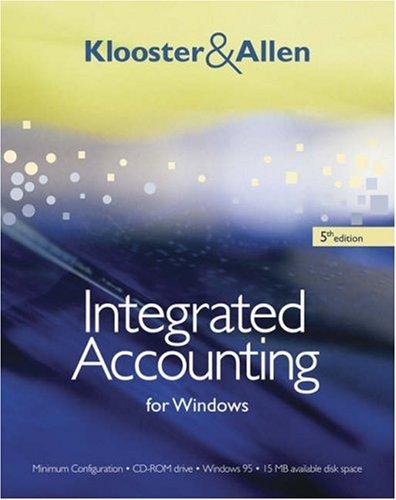Question
Question 20 Stewart's Components uses an activity based costing system for its product costing.For the last quarter, the following data relates to costs, output volume
Question 20
Stewart's Components uses an activity based costing system for its product costing.For the last quarter, the following data relates to costs, output volume and cost drivers:
Overhead Costs
Dollars
Machinery
172,000
Set-ups
66,000
Materials Handling
45,000
Total
$283,000
Product information
A
B
C
Production and sales
4,000 units
3,000 units
2,000 units
Number of production runs
12
5
8
Number of stores orders
12
6
4
If set-up costs are driven by the number of production runs, what is the set-up cost per unit traced to product A?
Question 20 options:
a)
$16.50
b)
$7.92
c)
$7.33
d)
$7.00
Question 21
Use the following costs per unit to identify the prime cost, total production cost and total cost for a product:
$ per unit
Direct materials
12
Indirect materials
6
Direct labor
24
Indirect labor
8
Variable production overhead
10
Variable selling & admin expense
5
Fixed production overhead
12
Fixed selling & admin expense
8
Question 21 options:
a)
Prime cost
Total production cost
Total cost of product
36
85
85
b)
72
72
85
c)
36
72
85
d)
36
22
72
Question 22
Marx Products makes parts for car engines. Three departments (A, B and C) are involved in the manufacturing process. The budgets for departmental overhead costs are $25,000, $45,000 and $30,000 respectively, which are allocated to products based on direct labor hours. Estimates of direct labor hours for each department are 5,000 7,000 and 10,000 hours respectively. The business-wide overhead absorption rate is:
Question 22 options:
a)
$5.00
b)
$4.81
c)
$4.55
d)
$3.00
Question 23
Bingo Holdings has overheads of $1,200,000 per year. It uses activity-based costing and has estimated the following cost pool and driver information for the year:
Cost pool
Cost driver
Purchasing
300,000
5,000 purchase orders
Material issues
400,000
10,000 stock issues
Scheduling
300,000
10,000 production orders
Delivery
200,000
5,000 deliveries
A customer has ordered a custom-made product that will require 5 purchase orders, 6 material issues, 2 production orders and 4 deliveries. The overhead to be allocated to the product is:
Question 23 options:
a)
$840
b)
$760
c)
$680
d)
$40
Question 24
The method of determining overhead allocation using absorption costing and that under activity-based costing differs because:
Question 24 options:
a)
Activity-based costing allocates costs to cost pools and traces costs to products based on cost drivers whereas absorption costing allocates costs to cost centers and then to products based on a measure of activity such as direct labour hours
b)
Absorption costing is based on a business-wide allocation of overheads whereas activity-based costing is based on a departmental (or cost center) allocation of overheads
c)
Activity-based costing can never accurately allocate overheads to products because the method of allocation is arbitrary whereas absorption costing is always more reliable because it uses predictable causes of overhead costs to trace those costs to products
d)
Absorption costing allocates costs to cost pools and traces costs to products based on cost drivers whereas activity-based costing allocates costs to cost centers and then to products based on a measure of activity such as direct labor hours
Step by Step Solution
There are 3 Steps involved in it
Step: 1

Get Instant Access to Expert-Tailored Solutions
See step-by-step solutions with expert insights and AI powered tools for academic success
Step: 2

Step: 3

Ace Your Homework with AI
Get the answers you need in no time with our AI-driven, step-by-step assistance
Get Started


